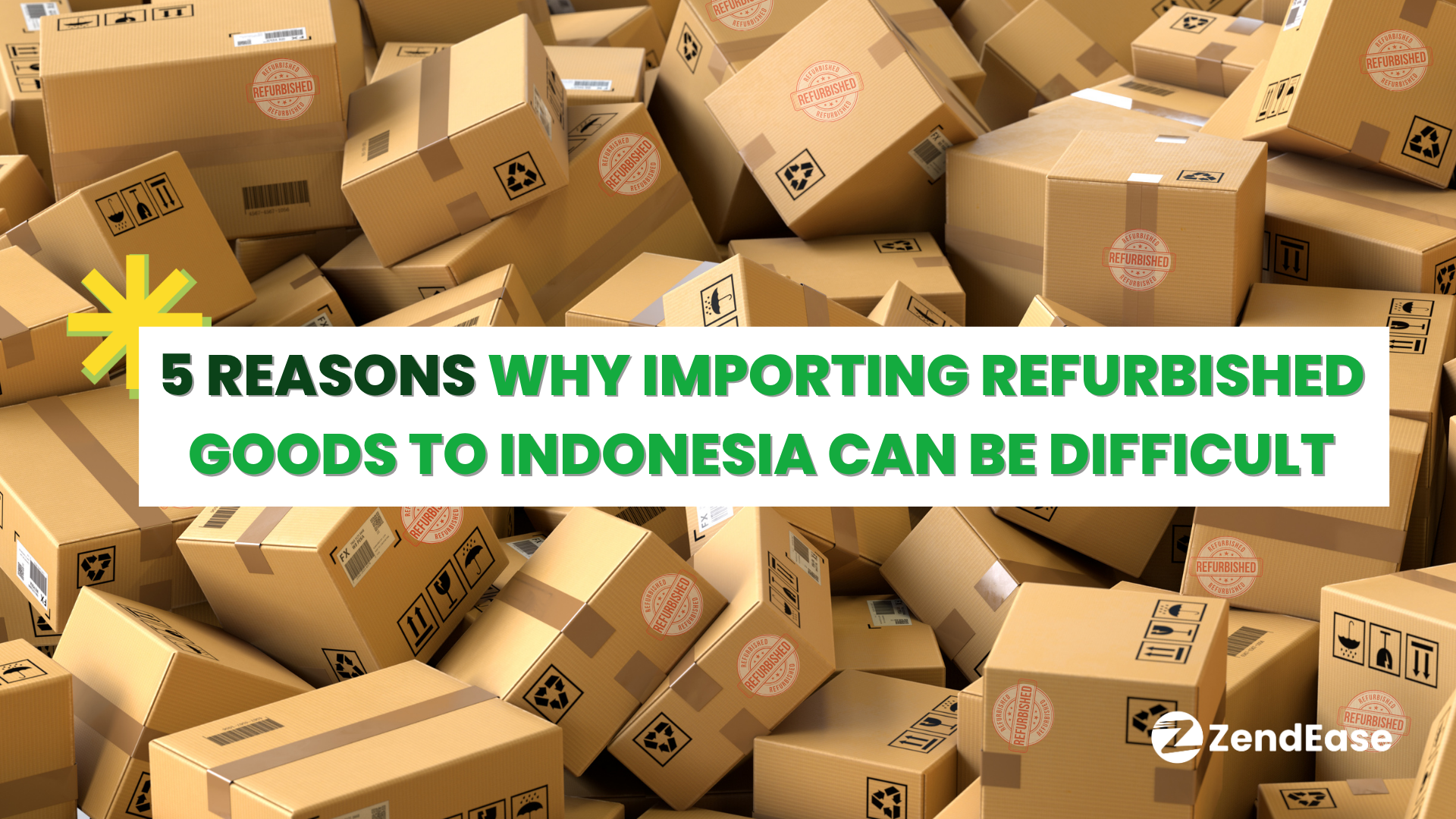5 Reasons Why Importing Refurbished IT Equipment to Indonesia Can Be Difficult
by Irsal Firmansyah on Jul 22, 2025

Refurbished IT equipment offers a cost-effective and sustainable option for businesses worldwide. However, bringing these products into Indonesia is not as straightforward as it might be in other markets. The country has strict import regulations — especially when it comes to used or refurbished goods.
If you’re planning to ship refurbished servers, switches, laptops, or other electronics to Indonesia, here are 5 key challenges you should be aware of:
-
Strict Import Restrictions on Used Goods
Indonesia generally prohibits the import of used goods, including electronic and IT equipment. Exceptions do exist, but they are limited to specific industries (e.g., medical, research, or licensed refurbishers) and require special government approvals. Without these exemptions, shipments can be rejected or seized at customs. -
Difficult Licensing Process
To legally import refurbished goods, companies must apply for a special import license (API-T or API-P) and often need approval from multiple government agencies, including the Ministry of Trade. The process is time-consuming and may require detailed justification of the product’s use, origin, and condition. -
Customs Scrutiny and Potential Rejection
Refurbished goods are flagged more often during customs clearance. If customs officials suspect that the goods are used, and you don’t have the proper documentation or permits, the shipment could be delayed, heavily fined, or re-exported at your cost. -
Unclear Product Classification
It can be difficult to classify refurbished goods under the correct HS Code. Some items may be considered “new” by the exporter but treated as “used” by Indonesian authorities. Misclassification can lead to disputes, penalties, and longer clearance times. -
Limited Access to Surveyor Inspection & Pre-Shipment Approval
For certain categories, pre-shipment inspection by an authorized surveyor is mandatory. However, getting approval for used items is much harder, as most surveyors will only issue clearance for brand-new products. Without this, the shipment may not even be allowed to depart from origin.
Conclusion
Indonesia’s stance on refurbished goods is strict, and the risks of importing without full compliance are high. That’s why it’s essential to consult with a local import expert or work with an experienced Importer of Record (IOR) who understands the latest regulations and can advise whether your shipment is eligible.
Considering shipping refurbished goods to Indonesia? Contact us today at indonesia@zendease.com for a compliance check before you ship.